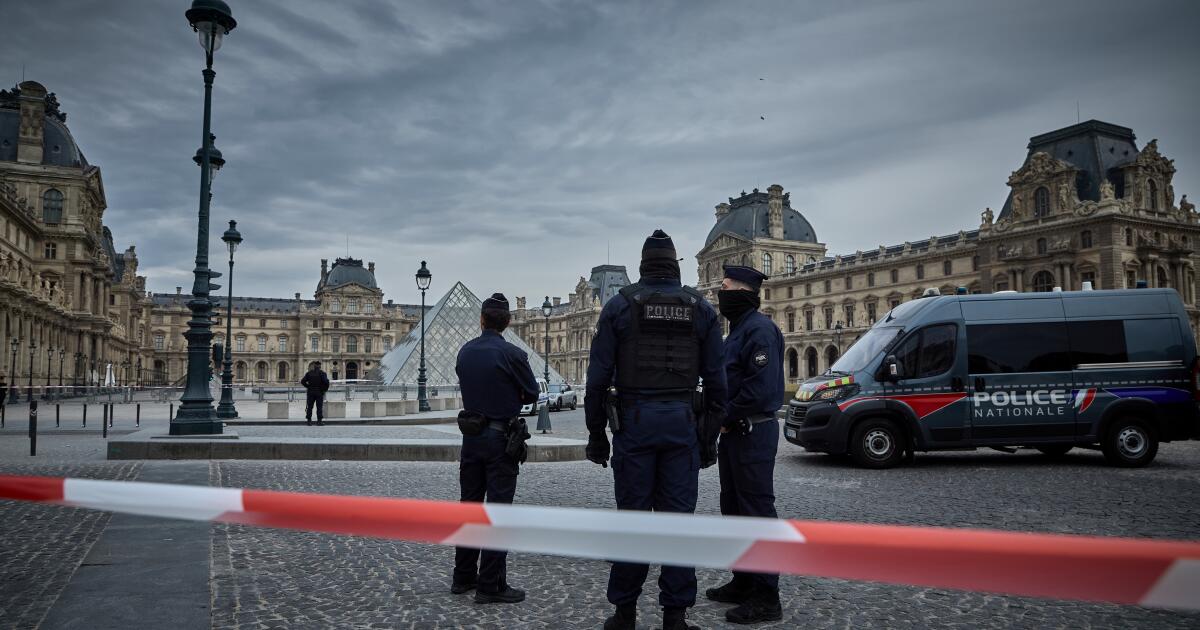Politics
Debate Erupts Over European Culture and Immigration’s Impact

The ongoing discourse surrounding European culture and its evolution has intensified following a recent opinion piece by contributing writer Josh Hammer. His article, published on October 24, argues that Europe is surrendering its cultural identity due to the influence of immigration and external forces. This perspective, however, has sparked counterarguments highlighting the historical context of cultural change in Europe.
Critics emphasize that European culture has always been shaped by the influx of outsiders. The Celts, Romans, Vikings, and Ottomans, among others, have all played significant roles in transforming European societies over the last 2,500 years. According to Arnold Burke, a resident of Lake Forest, this continuous blending of cultures is essential to the identity that Europeans cherish today. He questions the nostalgia for a supposed golden age, particularly from a Jewish perspective, noting historical tragedies such as the Holocaust and the Spanish Inquisition.
Burke asserts that to lament the arrival of new cultures is to overlook the many contributions they have made. He argues that Europe’s rich tapestry would not exist without this “constant influx of new blood.” His comments reflect a broader sentiment that both Europe and America must adapt to evolving demographics and ideas instead of clinging to an antiquated sense of national identity.
Another critic, James Kearns from Santa Monica, challenges Hammer’s assertion that declining happiness levels across Europe are linked solely to a departure from religion and family values. Kearns points out the significant implications of the Catholic Church’s history of covering up child abuse scandals, which has led to a loss of trust in religious institutions. He contends that such a decline in faith could understandably lead individuals to seek fulfillment elsewhere on weekends.
Kearns further critiques the idea that European culture is under siege from immigration, attributing this narrative to broader political and economic trends. He points out that issues like Brexit, the rise of far-right political parties, and increasing xenophobia contribute to the complex landscape of European identity today. He references statements from General Philip M. Breedlove, the former supreme allied commander in Europe, who highlighted the role of geopolitical tensions in exacerbating migration flows.
In his testimony before the House Armed Services Committee in 2016, Breedlove stated, “Together, Russia and the Assad regime are deliberately weaponizing migration in an attempt to overwhelm European structures and break European resolve.” Kearns argues that such conflicts should be considered when discussing the challenges facing European societies, rather than placing the blame solely on immigration.
This ongoing debate reflects divergent views on the nature of cultural identity in Europe. Proponents of a more inclusive perspective argue that embracing new ideas and cultures is necessary for growth, while others express concern over the perceived erosion of traditional values. As Europe navigates these complex issues, the conversation continues to evolve, emphasizing the need for a balanced understanding of history and contemporary realities.
-

 Sports2 weeks ago
Sports2 weeks agoSteve Kerr Supports Jonathan Kuminga After Ejection in Preseason Game
-

 Politics2 weeks ago
Politics2 weeks agoDallin H. Oaks Assumes Leadership of Latter-day Saints Church
-

 Business2 weeks ago
Business2 weeks agoTyler Technologies Set to Reveal Q3 2025 Earnings on October 22
-

 Science2 weeks ago
Science2 weeks agoChicago’s Viral ‘Rat Hole’ Likely Created by Squirrel, Study Reveals
-

 Lifestyle2 weeks ago
Lifestyle2 weeks agoKelsea Ballerini Launches ‘Burn the Baggage’ Candle with Ranger Station
-

 Lifestyle2 weeks ago
Lifestyle2 weeks agoDua Lipa Celebrates Passing GCSE Spanish During World Tour
-

 Entertainment2 weeks ago
Entertainment2 weeks agoZoe Saldana Advocates for James Cameron’s Avatar Documentary
-

 Health2 weeks ago
Health2 weeks agoRichard Feldman Urges Ban on Menthol in Cigarettes and Vapes
-

 Health2 weeks ago
Health2 weeks agoCommunity Unites for Seventh Annual Mental Health Awareness Walk
-

 World2 weeks ago
World2 weeks agoD’Angelo, Iconic R&B Singer, Dies at 51 After Cancer Battle
-

 Business2 weeks ago
Business2 weeks agoMLB Qualifying Offer Jumps to $22.02 Million for 2024
-

 Sports2 weeks ago
Sports2 weeks agoPatriots Dominate Picks as Raiders Fall in Season Opener









